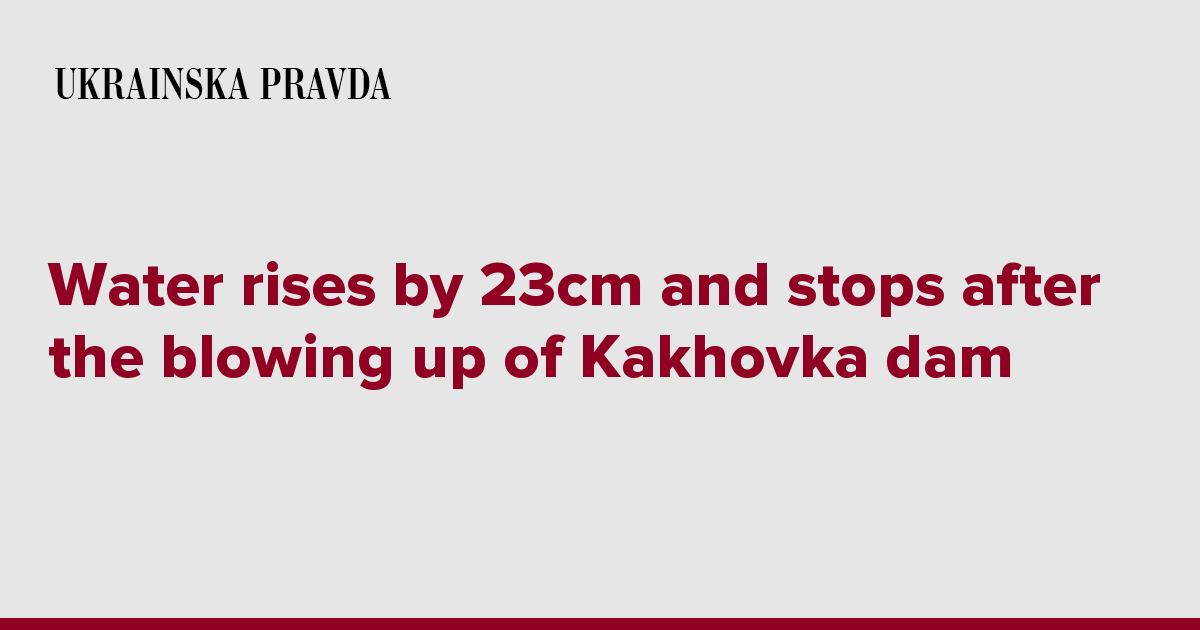Water rises by 23cm and stops after the blowing up of Kakhovka dam

The water level has risen by 23 centimetres in the city of Mykolaiv after the blowing up of the Kakhovka Hydroelectric Power Plant (KHPP) and water spilling from the Kakhovka Reservoir, and is remaining at this level for the time being. Source: Oleksandr Sienkevych, Mayor of Mykolaiv, on Telegram Quote: "The water level in Mykolaiv has risen by 23cm as of 14:00.
The good news is that there have been no changes within the hour, i.e., until 15:00. We are further monitoring the situation. There is currently no threat of flooding."
Details: Later, Sienkevych said that no rise in the water level in Mykolaiv had been recorded as of 16:00.
Advertisement:Background: On the morning of 6 June, Ukraine's Operational Command Pivden (South) reported that Russian occupation forces had blown up the Kakhovka Hydroelectric Power Plant (HPP), completely destroying the dam and the power plant's turbine hall. The hydroelectric power plant is beyond repair. A preliminary forecast by Ukrhydroenergo, the Ukrainian power company who runs the plant, indicates that the reservoir is expected to be drained within the next four days.
The draining of the Kakhovka Reservoir threatens the safety of the Zaporizhzhia Nuclear Power Plant. Water from the reservoir has begun to flood towns and villages, and evacuations of local residents from dangerous areas have begun. The blowing up of the dam at the Kakhovka Hydroelectric Power Plant has caused problems with the water supply in the cities of Kryvyi Rih, Marhanets and Nikopol, Dnipropetrovsk Oblast.
We have launched English Twitter!
Nataliia Humeniuk, head of the press centre of Operational Command Pivden (South), said the Russian invaders had lost their nerve while waiting for the counteroffensive of the Ukrainian Armed Forces to start, so they blew up the Kakhovka Hydroelectric Power Plant hoping to stop it. Ukraine's Armed Forces have stated that the Russians' blowing up of the Kakhovka hydroelectric power plant will not prevent the Defence Forces from continuing to liberate the occupied territories. A week before the Kakhovka Hydroelectric Power Plant was blown up, Russia authorised the non-investigation of accidents at high-risk facilities that occurred as a result of "military operations" and terrorist attacks.
Early reports indicate that the Kakhovka Hydroelectric Power Plant was blown up by the 205th Separate Cossack Motor Rifle Brigade of the Russian armed forces, and some of the names of the alleged perpetrators are also known.
Read also: Flooded South: the consequences of blowing up the Kakhovka dam (in brief)
Journalists fight on their own frontline. Support Ukrainska Pravda or become our patron!